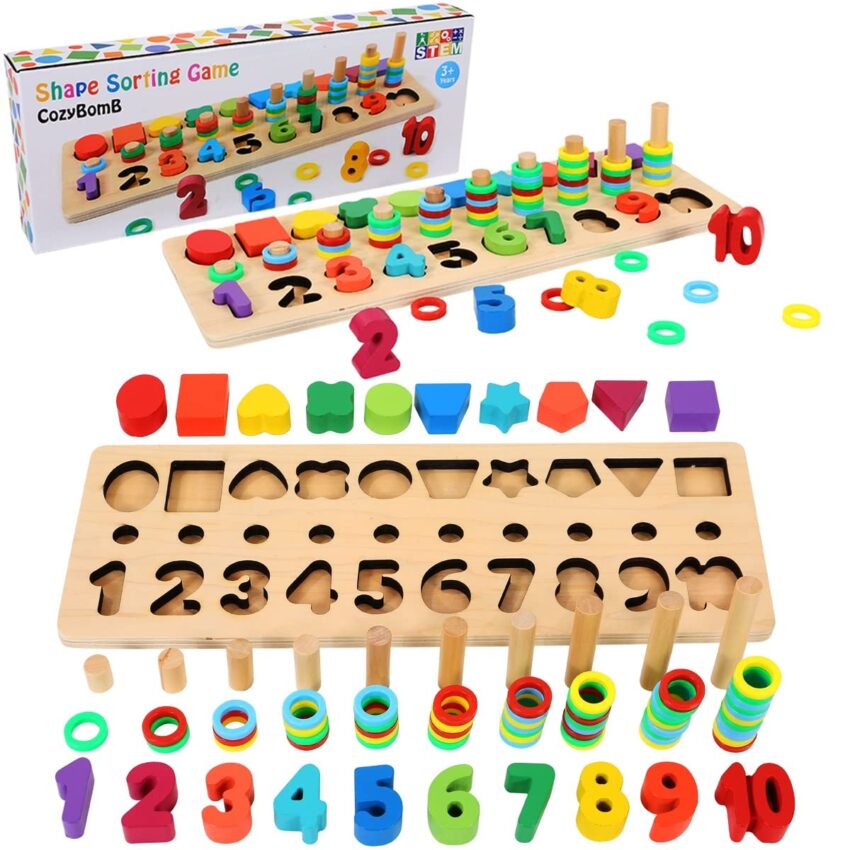Montessori Apparatus: A Hands-On Approach to Early Childhood Education
Introduction
The Montessori education system was developed by Dr. Maria Montessori in the early 20th century and has gained significant popularity worldwide. One of the key elements of this approach is the use of Montessori apparatus, which are hands-on learning tools designed to promote independent thinking, problem-solving, and sensory exploration in young children.
The Importance of Hands-On Learning
Montessori education believes that children learn best through active engagement with their environment. By providing them with tangible materials to manipulate, Montessori apparatus allows children to learn through their senses and develop their cognitive, physical, and social-emotional skills. These materials also foster concentration, self-discipline, and a joy of learning.
Types of Montessori Apparatus
There are various types of Montessori apparatus that each serve different purposes in supporting a child’s development:
1. Sensorial Materials
The sensorial materials focus on helping children refine their senses. This includes materials for visual discrimination, tactile exploration, auditory discrimination, olfactory experiences, and gustatory senses. For example, the iconic Montessori Pink Tower helps children learn about size gradation and spatial relationships.
2. Language Materials
These materials are designed to support language development through phonetic awareness, vocabulary building, reading, and writing skills. The use of movable alphabets and sandpaper letters allows children to explore sounds and letters in a hands-on way, making learning more tangible and enjoyable.
3. Mathematics Materials
Montessori mathematics materials introduce mathematical concepts through concrete, manipulative tools. Through activities with counting, sequencing, decimal system, operations, and geometry, children develop a deep understanding of mathematical concepts before moving to abstract representations.
4. Practical Life Materials
Practical life materials focus on developing everyday life skills such as pouring, spooning, buttoning, and sweeping. These activities help children develop fine motor skills, coordination, concentration, and independence in taking care of themselves and their environment.
Benefits of Montessori Apparatus
The use of Montessori apparatus offers various benefits to early childhood education:
1. Promotes Independent Learning
By providing children with materials that they can manipulate and explore independently, Montessori apparatus promotes self-directed learning. Children have the freedom to choose their activities, work at their own pace, and explore their interests, fostering a sense of autonomy and initiative.
2. Engages Multiple Senses
The hands-on nature of Montessori apparatus caters to different learning styles and engages multiple senses. By involving touch, sight, hearing, and sometimes taste and smell, children deepen their understanding and retention of concepts, making learning more meaningful and memorable.
3. Develops Problem-Solving Skills
The materials used in Montessori apparatus are carefully designed to present challenges that gradually increase in difficulty. This allows children to develop problem-solving skills, logical thinking, and critical reasoning abilities. They learn to experiment, make predictions, and draw conclusions through hands-on experiences.
4. Encourages Concentration and Focus
Montessori apparatus promotes concentration and focus by providing children with purposeful and engaging activities. The materials are designed to capture children’s interest, leading them to engage in deep, uninterrupted work cycles. This concentration fosters the development of attention span and self-discipline.
5. Fosters a Love for Learning
The Montessori apparatus stimulates children’s curiosity, creativity, and joy of learning. By offering materials that are aesthetically pleasing and captivating, children develop a natural love for exploration and discovery. This positive association with learning sets a strong foundation for lifelong learning.
Conclusion
The Montessori apparatus is a vital component of the Montessori education system, providing children with hands-on tools to explore, manipulate, and learn through their senses. These materials promote independent learning, engage multiple senses, develop problem-solving skills, encourage concentration, and foster a love for learning. By embracing this hands-on approach to early childhood education, children can develop a strong foundation for future academic success and personal growth.
Nidhin
For More Details Call: +917510220582

